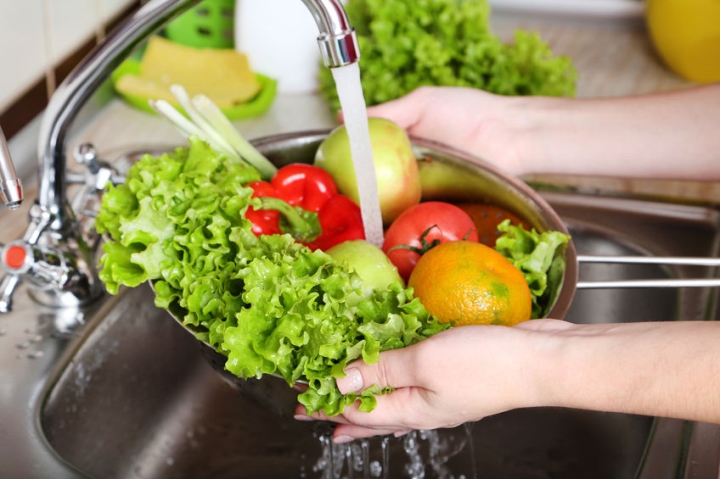

How safe is the food you're eating?
There seems to be rapidly growing concerns about food safety over recent years, and many people have experienced some form of food poisoning. These foodborne illnesses occur from consuming food that has been contaminated with microbial pathogens, toxic chemicals, or even radioactive materials. Cross-contamination from already contaminated food can also cause unpleasant side effects when consumed.
While many of these foodborne illnesses can be self-limiting, some of them can be very serious and may even cause death - so it’s important to be conscious about food safety. Here are some important things you need to know about food safety from the World Health Organisation (WHO).
Key facts
- Unsafe foods containing harmful bacteria, viruses, parasites or chemical substances can cause more than 200 diseases, and these range from diarrhoea to cancer
- Around 1 in every 10 people in the world will fall ill each year after eating contaminated food and 420,000 die every year
- Diarrhoeal diseases are the most common illnesses relating from contaminated food consumption, causing 550 million people to fall ill and 230,000 deaths each year
Food hygiene
Basic food hygiene includes:
- Keeping food surfaces clean
- Washing all utensils, plates, platters, cutleries as soon as possible after use
- Washing raw foods thoroughly with clean water before cooking
- Separating raw food and cooked food
- Using separate clean chopping boards for different types of foods
- Practicing the “clean as you go” principle all the time
- Washing hands with soap and water before handling food
These are very basic food hygiene practices, but many people ignore them. Now is the time to get into the habit of incorporating them into your kitchen routine to ensure the foods you are eating are safe.
Food labelling
When you buy pre-packaged food, it’s important to look at the labelling to make sure it’s safe for consumption and that you’re happy with its origins. You should always check:
- The name of the food
- List of ingredients
- Net contents and drained weight
- Name and address
- Country of origin
- Lot identification
- Date marking and storage instructions
- Instructions for use
“Use by” dates
The "use by" date on a pre-packaged food item is also known as the expiration date or recommended last consumption date. This is the date up to which the microbiological, physical stability and nutrient content are maintained (assuming the proper storage instructions on the label have been followed). It is important to consume the food on or before the expiration date to ensure it is still safe to eat and has not lost its nutritional value.
Spoiled food
Keep a constant lookout for spoiled food. If it looks or smells suspicious, don’t risk it, just ditch it. Use ready to eat foods such as cold meats as soon as possible – the longer they’re kept in the fridge, the higher the chance of bacteria growing.
Cold storage
You should always refrigerate or freeze perishables as soon as you bring them home and no perishables should be left at room temperature for more than 2 hours (or one hour on hot days). Keeping the temperature of the fridge below 4 °C and your freezer below -18oC will protect most foods.
Always be aware that food can make you very sick even when it doesn't look, smell, or taste spoiled. Foodborne illnesses are caused by pathogenic bacteria, which are different from the spoilage bacteria that make foods go “off." Many of these pathogenic organisms are present in raw or undercooked meat, poultry, seafood, milk, and eggs; in unclean water and on fruits and vegetables. Keeping these foods properly chilled will slow the growth of bacteria.
Food for thought
As the old saying goes, it’s always better to be safe than sorry. Knowing and implementing the basic principles of food safety will help you prevent foodborne diseases. All it takes is a little bit of extra effort to keep you and your family safe. Make sure your cooking equipment is still working properly and perform regular checks on your refrigerator and freezer temperatures.
Don’t worry if your fridge or freezer is getting close to its own use by date - we’re here to help you with the cash to buy a new one. Just check out our fast cash loans to $5,000 to find out how quick and easy it is to get your hands on some extra funds. Once a loan has been approved, we can usually deposit the cash into your bank account within a few hours - so you can go ahead and replace that old equipment this week!